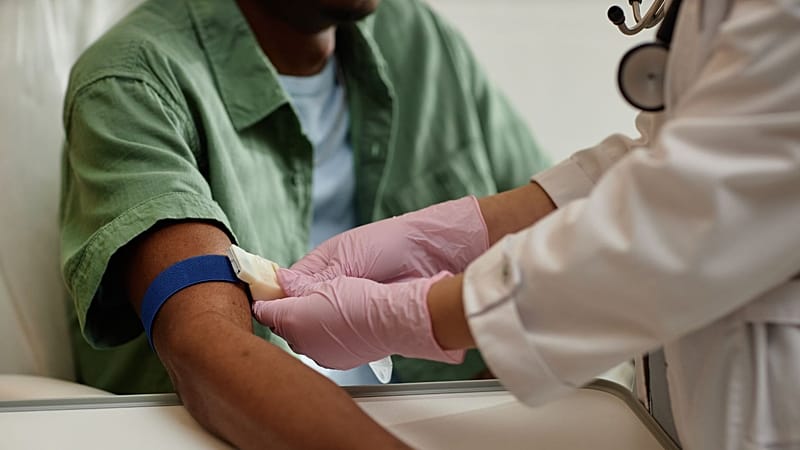
Prostate cancer screenings slash the risk of dying from the disease in the following decades, according to new research.
The screening measures the amount of prostate-specific antigen (PSA) in men’s blood. If they have abnormal results, doctors typically recommend biopsies and additional testing to make a prostate cancer diagnosis.
The study, which was published in the New England Journal of Medicine, indicates that PSA tests help save lives – but said there’s also a risk of excessive, and ultimately unhelpful, screening.
The study began in 1993 to track PSA testing’s impact on prostate cancer deaths across Europe, starting in the Netherlands and Belgium. Medical centres in France, Finland, Italy, Spain, Sweden, and Switzerland later joined.
In all, the study included more than 162,000 men aged 55 to 69 who were randomly split into two groups: either they were regularly invited for PSA tests, or they were not invited for screenings.
After a median of 23 years, men in the screening group were more likely to be diagnosed with prostate cancer – but 13 per cent less likely to die from it.
The researchers concluded that one life was saved for every 456 men invited for screening and every 12 men diagnosed with prostate cancer.
The findings suggest that screening men without symptoms “does reduce the risk of death from prostate cancer, but significant benefits take many years to realise due to the slowly growing nature of the disease,” Ben Lamb, urology cancer lead at a London hospital, said in a statement. He was not involved with the study.
Independent experts noted that widespread screening programmes can also have drawbacks. Some low-grade cancers are so slow-growing that they never cause health problems, meaning identifying them can cause anxiety and unnecessarily aggressive treatment.
In recent years, doctors have called for low-grade prostate cancers – which are common among older men and do not spread beyond the prostate – to be labelled as something other than cancer.
“Many of the cancers found may not have benefited from treatment, but patients would have been subjected to treatments and treatment-related side effects, which can include life-changing effects such as erectile dysfunction,” said Veeru Kasivisvanathan, an associate professor of urology at University College London who was not involved with the study.
Prostate cancer is one of the most common forms of cancer worldwide, and cases are expected to rise in the coming decades. There were an estimated 330,000 new diagnoses in the European Union in 2022.
The study authors said that going forward, prostate cancer screening strategies should try to incorporate the benefits of regular PSA testing while minimising the risk of overdiagnosis.







